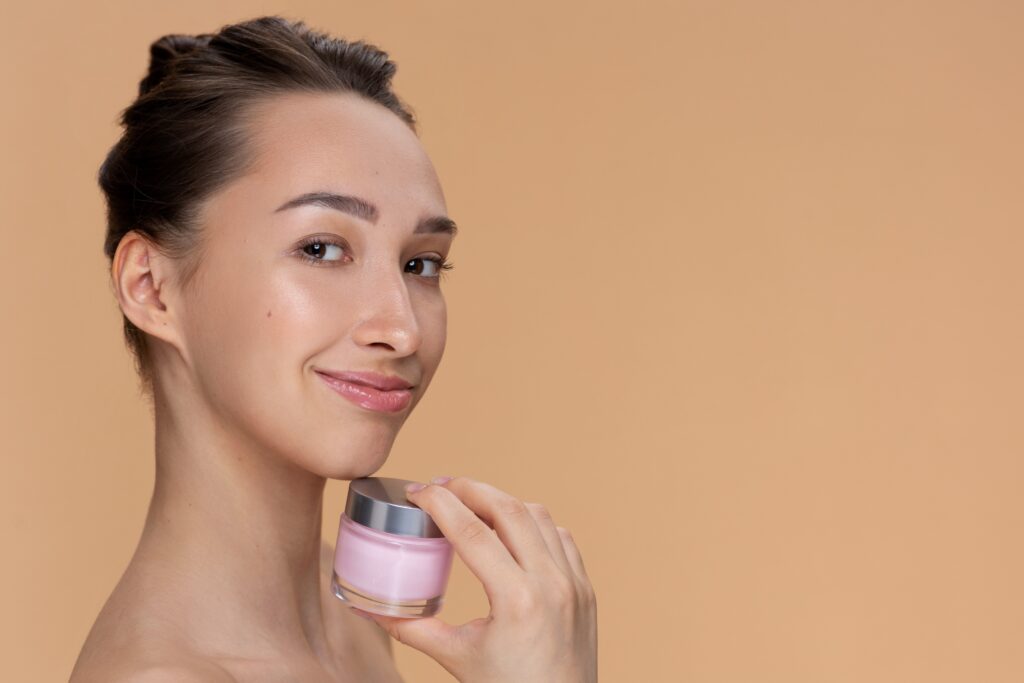
As we strive to achieve healthier, younger-looking skin, the beauty industry offers an array of products that promise to rejuvenate and enhance our complexion. Among these, retinol and peptide-based night creams have gained immense popularity. But what makes them so effective, especially when used together? Let’s explore the benefits of incorporating these powerful ingredients into your nighttime skincare routine.
Retinol: The Gold Standard in Anti-Aging
Retinol, a derivative of Vitamin A, is widely considered one of the most effective ingredients for skin renewal. Its popularity stems from its ability to accelerate skin cell turnover, reducing fine lines, wrinkles, and hyperpigmentation. Here’s why it’s a skincare superstar:
1. Stimulates Collagen Production: Retinol promotes the synthesis of collagen, the protein responsible for skin firmness and elasticity. Over time, consistent use can lead to smoother, plumper skin.
2. Reduces Fine Lines and Wrinkles: By boosting cell turnover, retinol helps shed dead skin cells and replaces them with new, healthy ones. This process diminishes the appearance of fine lines and wrinkles, giving your skin a youthful glow.
3. Improves Skin Texture and Tone: Retinol can also help fade dark spots and even out skin tone, making it ideal for those with pigmentation concerns or uneven skin texture.
4. Unclogs Pores: If you struggle with acne, retinol can be a game-changer. Its exfoliating properties keep pores clear, reducing the likelihood of breakouts.
However, retinol can be irritating for beginners, causing redness, dryness, or peeling. To minimize irritation, it’s essential to start with a low concentration and gradually increase it as your skin builds tolerance. Pairing it with a hydrating and nourishing ingredient, like peptides, can also help reduce sensitivity.
Peptides: The Building Blocks for Skin Repair
Peptides are short chains of amino acids, the fundamental components of proteins such as collagen and elastin. When applied topically, peptides send signals to your skin to produce more collagen and elastin, which are essential for maintaining skin’s structure and firmness.
Here’s why peptides are a must-have in your skincare regimen:
1.Boosts Collagen Production: Peptides act as messengers, telling your skin to produce more collagen. This results in firmer, more elastic skin over time.
2. Improves Skin Barrier Function: Peptides help strengthen the skin’s natural barrier, which protects against environmental damage and moisture loss.
3. Reduces Inflammation: Many peptides have anti-inflammatory properties, which can help calm irritated skin, reduce redness, and enhance overall skin health.
4. Enhances Hydration: Certain peptides support the skin’s ability to retain moisture, keeping it hydrated and plump.
Why Retinol and Peptides Work Well Together
You may wonder if it’s safe to use retinol and peptides together. The answer is a resounding yes! When combined in a night cream, they form a powerful anti-aging duo that addresses multiple skin concerns at once. Here’s why they’re a match made in skincare heaven:
1. Complementary Effects: Retinol stimulates cell turnover and collagen production, while peptides further enhance collagen synthesis and help repair damaged skin. Together, they amplify each other’s benefits.
2. Reduced Irritation: Peptides are known for their soothing and hydrating properties, which can counterbalance the potential irritation caused by retinol. This makes it easier for your skin to tolerate retinol, especially if you’re a beginner.
3. Complete Skin Rejuvenation: While retinol works to renew the skin by increasing cell turnover and addressing signs of aging, peptides help maintain and strengthen the skin’s structure, leading to a more youthful and resilient complexion.
How to Incorporate Retinol and Peptides into Your Night Routine
To get the most out of this powerful combination, it’s essential to use them properly. Here’s a step-by-step guide to incorporating a retinol and peptide-based night cream into your routine:
1. Cleanse: Start with a gentle cleanser to remove makeup, dirt, and oil from the day.
2. Tone (Optional): Use a hydrating toner to prep the skin and ensure maximum absorption of the following products.
3. Apply Retinol: After your skin has dried completely, apply a pea-sized amount of retinol. Start by using it 2-3 times a week and increase frequency as your skin builds tolerance.
4. Follow with Peptide Cream: Once the retinol has absorbed, apply a peptide-infused night cream to nourish, hydrate, and repair the skin.
5. Moisturize: If your night cream doesn’t already contain peptides or hydration boosters, you can follow up with a lightweight moisturizer to seal in all the active ingredients.
6. SPF in the Morning: Always use sunscreen during the day after applying retinol at night, as retinol increases the skin’s sensitivity to the sun.
Final Thoughts
Retinol and peptide-based night creams offer a powerful solution for those looking to improve skin texture, tone, and overall resilience. By combining the collagen-boosting effects of retinol with the repair and hydration benefits of peptides, you can create a comprehensive anti-aging skincare routine that works while you sleep. Remember, consistency is key, and with time, you’ll see the transformative results of this dynamic duo.
